Publications
Articles, publications, books, tools and multimedia features from the U.S. Institute of Peace provide the latest news, analysis, research findings, practitioner guides and reports, all related to the conflict zones and issues that are at the center of the Institute’s work to prevent and reduce violent conflict.
On the Issues: Tensions on the Korean Peninsula
USIP’s John Park discusses recent events on the Korean Peninsula and assesses the outlook for 2011.
On the Issues: Iran
The United States enters another year without diplomatic relations with Iran. Around the world nations worry about the potential of Iran to develop its nuclear program. Can a strategy of engagement with Iran yield results? Can the sanctions effort prevail? Or is the military option still on the table. Robin Wright, USIP-Wilson Center Scholar looks at the issues.
On the Issues: Sudan's Referendums
Jacqueline Wilson, USIP senior program officer, talks about south Sudan's referendum and USIP's work on the ground.
On the Issues: Lebanon's Government
Mona Yacoubian addresses the recent collapse of Lebanon's government and discusses implications for stability in the country.
The Future of Pakistan: Event Wrap
Charting Pakistan’s future is a nearly impossible task as it is so steeped in uncertainty. And yet it is critical to American foreign policy, with more than 100,000 U.S. troops fighting a resilient insurgency across the border in Afghanistan. While the challenges are nearly insurmountable, experts say, there are areas in which progress for the U.S.-Pakistani relationship is possible.
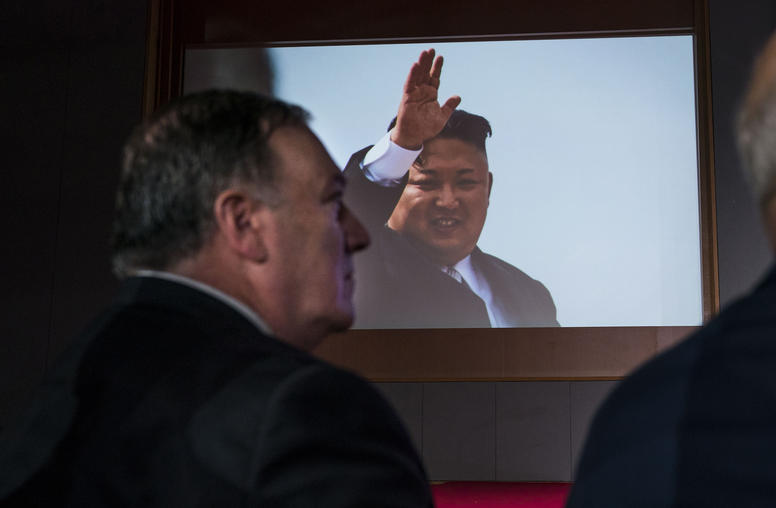
Can North Korea Negotiations Get Back on Track?
Frank Aum looks at the ramifications of the cancellation of Secretary of State Pompeo's trip to North Korea and what it could signal about U.S. policy moving forward.
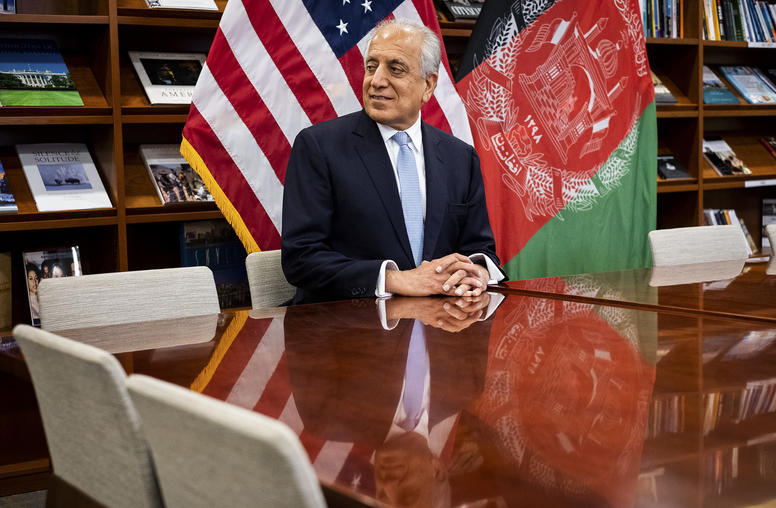
U.S.-Taliban Talks Make ‘Significant Progress’: What’s Next?
After years of stalemate, a framework deal between the U.S. and the Taliban has inspired hope that the Afghan war—the longest in U.S. history—could come to an end. USIP’s Scott Worden analyzes the progress made in recent talks, why the U.S. is now directly negotiating with the Taliban and the implications of further negotiations and a potential peace deal on Afghanistan’s 2019 presidential election.
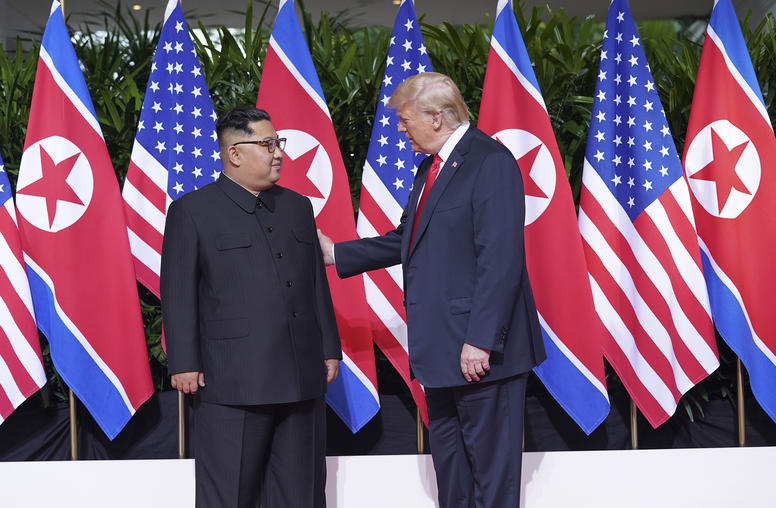
On to Vietnam: What Will Happen at the Second Trump-Kim Summit?
At the State of the Union address this week, President Trump announced that he will again meet with North Korean leader Kim Jong Un at the end of February in Vietnam for their second face-to-face negotiations. The president’s announcement follows recent comments from U.S. Special Representative for North Korea Stephen Biegun indicating that the U.S. is prepared to negotiate on both denuclearization and peace simultaneously—an approach that the Trump and former administrations previously eschewed. USIP’s North Korea and China experts examine the potential shift in U.S. policy and what concerns key regional players have over the next summit.
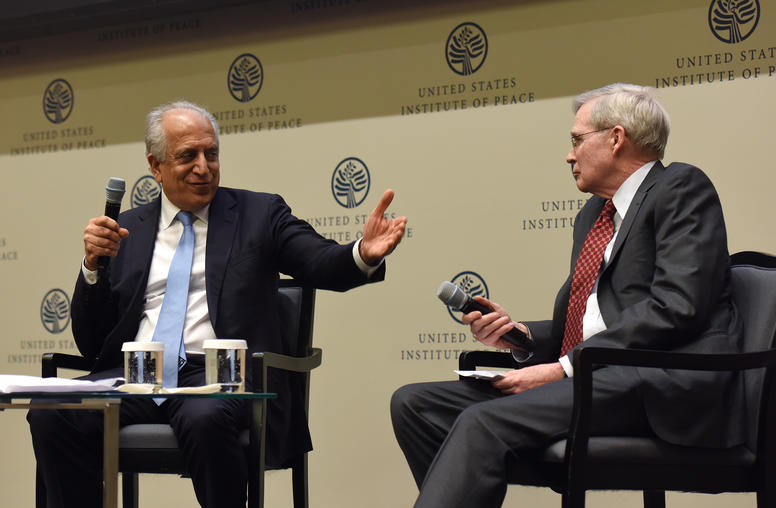
Progress in Taliban Talks, But ‘Long Way to Go’, says U.S. Envoy
Amid a series of positive developments in the Afghan peace process over the last year, a framework for negotiations reached between the U.S. and Taliban has renewed hope that the 17 year-old Afghan conflict could come to a close. Led by Special Representative for Afghanistan Reconciliation Zalmay Khalilzad, the U.S. has agreed in principle to a conditional withdraw of U.S. and allied troops in exchange for the Taliban pledging to not allow Afghanistan to be a safe haven for transnational terrorists, like al-Qaida, as well as agreeing to talks that include the Afghan government and a cease-fire. Despite this progress, “We are in the early stages of a protracted process,” Ambassador Khalilzad said at the U.S. Institute of Peace on February 8. “We have a long way to go.”
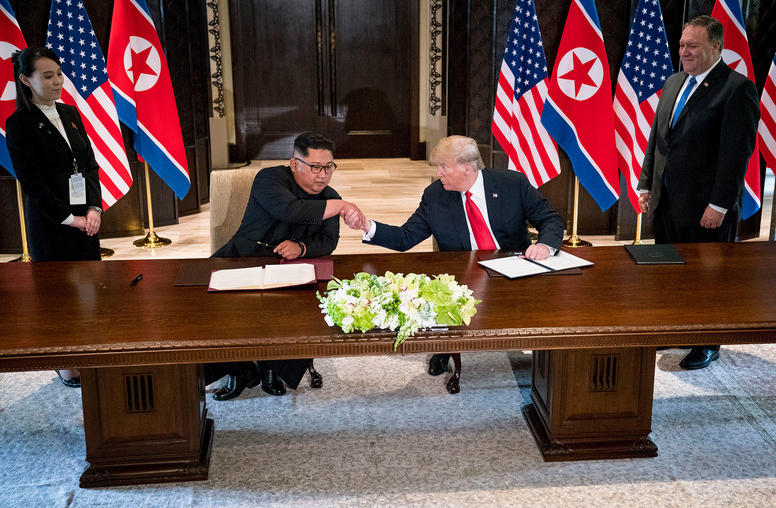
Have the Stars Lined Up on North Korea?
Tomorrow’s summit between President Trump and Chairman Kim Jong Un represents the best opportunity for peace in the last 20 years. In 2000, the United States came—as former senior Clinton administration official Wendy Sherman described—“tantalizingly close” to achieving an agreement that would halt North Korea’s production, deployment, and testing of long-range missiles. And this was in addition to the 1994 Agreed Framework deal, which froze North Korea’s nuclear facility at Yongbyon. What is different this time around?